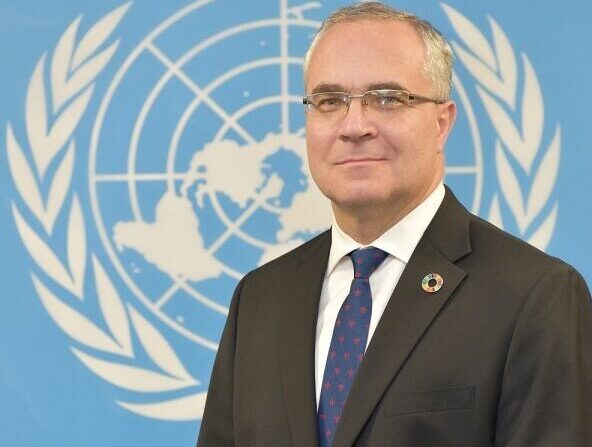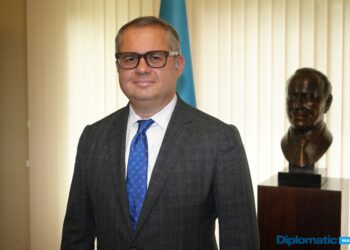Join us in a conversation with Michal Mlynár, United Nations Assistant Secretary-General and Acting Executive Director of UN-Habitat, as he shares his perspectives on sustainable urban development in an interview with Diplomatic Watch. With over two decades of diplomatic experience, Ambassador Mlynár was Slovakia’s Permanent Representative to the United Nations in New York. Now, he actively contributes strategic insights to UN-Habitat’s mission. He has led diplomatic endeavors, nurturing partnerships and rebuilding trust.
During the interview, Ambassador Mlynár highlights UN-Habitat’s priority on adequate housing, urban climate resilience, and SDGs localization. Continue reading to discover how through dialogue and engagement, resources are mobilized to implement the New Urban Agenda.
As the Acting Executive Director of UN-Habitat, could you share some of the key initiatives or projects you have been involved in? How do these contribute to sustainable urban development and address pressing global challenges?
Thank you very much for reaching out. It is probably good to start by saying that I served previously as a diplomat for my own country, Slovakia, for 23 years. This included serving as Ambassador of Slovakia to Kenya and eleven other countries in the region, with accreditation to the UN Office in Nairobi and UNEP (United Nations Environment Programme) and UN-Habitat (United Nations Human Settlements Programme) from 2012 to 2015. Later, I served as Slovakia’s Ambassador to the United Nations in New York from 2017 to last year, 2023.
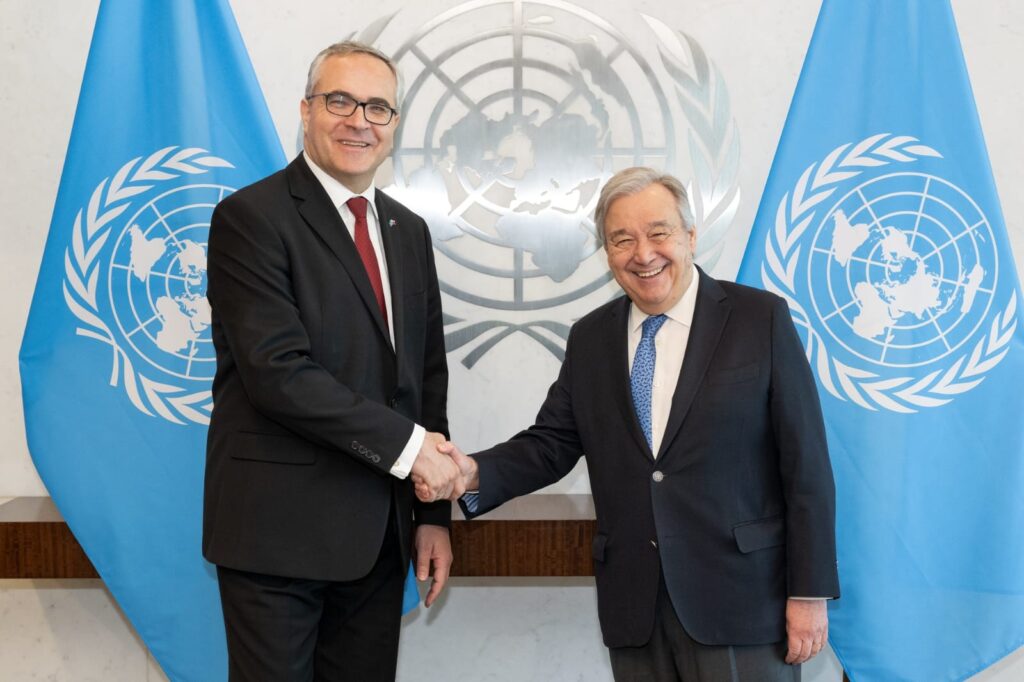
Then, an opportunity arose to apply all that previous experience inside the UN system. I thought it was a challenge worth accepting. I have served with UN-Habitat since April 2023 as Deputy Executive Director and UN Assistant Secretary-General. My focus has been primarily on the diplomatic and political support that this agency needs, focusing on partnerships, particularly with our key donors and Member States who truly work with and support us. This includes building and rebuilding trust because, unfortunately, UN-Habitat previously went through bumpy periods. Last but not least, I’ve been supporting the completion of the repositioning of this important UN agency.
As part of the UN Secretariat, our mandate focuses on sustainable cities and human settlements. In other words, we focus on our urban future because, as we all know, the future is already urban, especially in developing countries, including Africa, as the statistics clearly show. It’s a very exciting mandate because we see how sustainable urban development and sustainable urban planning have a positive impact on the lives of people on the local level. We can influence positive sustainable solutions and address quality of life issues, including poverty, access to water, sanitation, energy, education, health, and of course, at the core of all that, affordable and adequate housing.
Our top priorities are housing, number two, urban climate – addressing the effects of climate change in the urban context. Localization of SDGs is another key priority, whereby we ensure that all 17 Sustainable Development Goals are brought down to the local level and then implemented in a way that truly benefits the people. Because as people, we primarily live on the local level. When you wake up in the morning, you are not thinking about who your President is or what kind of policies the government has, but you are thinking about your house, your garden, your street, your children’s schools. You are thinking about the traffic lights or waste management; these everyday practicalities of life that are happening first and foremost on the local level. And if you have a problem, you call the mayor, the governor, or your local MP.
These priorities of housing, climate, and localization of SDGs are key. Then, of course, in recent years we have been focusing a lot on urban crises, whether man-made or natural disasters. The reconstruction, rebuilding, and the aftermath of the crisis, including as you can imagine, the situation in Ukraine and the situation in Gaza that is currently unfolding. But we also support countries in the aftermath of natural disasters: cyclones, earthquakes, and other similar situations. Countries like Mozambique, Libya, Syria, Türkiye, just to mention a few. Last but not least, all of this is, of course, underpinned by ensuring that there is sustainable financing of these related initiatives, including on the local level.
This is a quick introduction. I often refer to UN-Habitat as “small, but beautiful.” Small because we are not like some other larger UN agencies, but our mandate is super relevant. And of course, we contribute in different ways to the overall initiatives of the United Nations together with all its agencies and programmes. UN-Habitat is currently present more than 90 countries with projects, with people in many countries, of course, working alongside and in collaboration with the UN country teams. We have a project portfolio of about USD 200 million annually and we have staff of about 370 in Nairobi where we have our global headquarters and about 800 around the world.

UN-Habitat plays a crucial role in promoting sustainable cities and human settlements. Can you elaborate on specific strategies or policies that your team is implementing to enhance urban resilience, affordable housing, and inclusive urban planning?
I would start with our strong focus on urban planning. This is really at the core of our work. We provide advice and policy support to many governments and partners in different countries. We believe this is crucial because many urbanization challenges happen because of a lack of appropriate long-term, sustainable urban planning policies and strategies. So, in Africa, Asia, and Latin America, we provide a lot of support for national governments, local and regional governments, and other partners in the area of urban planning.
Of course, we are not a consultancy firm. But we have amazing teams of experts on different aspects of urban policies who can support relevant ministries or other partners. We guide them through some of the difficult policy choices they have to make, and for various reasons, those choices can be challenging. If they have a UN entity like UN-Habitat working with them and supporting them with credible evidence and recommendations, it’s a lot easier for governments to make those important decisions with the long-term interest of the country in mind – ideally, taking decisions not for the next election cycle but for the next generation.
We promote what we call national urban fora, where we believe it’s important that all the different actors come together and have an in-depth discussion about how they want to shape certain policies in their own country. We’ve seen that some national urban fora, including those in Kenya, Tanzania, Ethiopia, and even on the subregional level for ECOWAS (Economic Community of West African States) countries or SADC (Southern African Development Community) countries, have been truly transformational in bringing about this urban planning conversation. This conversation may have been lacking for various reasons, such as lack of capacity, awareness, political will, or focus.
When we can generate real conversations in the context of national urban fora, we’ve seen that they have produced some real impact. But of course, there is a lot of practical work that we also do. We support governments on housing policies, addressing underlying climate challenges, and the issue of informal settlements – our preferred term instead of “slums.” In different contexts and countries, we need to approach this problem because it’s a failing housing policy, closely linked to other socio-economic issues, including jobs and economic opportunities, especially for young people.
We have a lot of projects supporting urban regeneration, creating public spaces, or greening spaces. We have amazing programs on green cities, safer cities, women-led cities, just to mention a few. We have a lot of interesting work on SDG cities. Here, we invite cities to join us in a network of other cities where they can share information about how they implement the 2030 Agenda and the SDGs. Then, once they have fulfilled basic requirements, we can recognize them as part of the SDG city framework, which is often welcomed by cities.
A recent addition to the SDG cities framework has been Medina in Saudi Arabia. We have a mission of reaching 1,000 cities before 2030, impacting at least one billion people. That’s the target we have set for ourselves for the SDGs cities program.
These are some of the practical examples. For example, on housing, our data shows that we are facing such a housing gap in the whole world that if we wanted to address it properly, we need to build 96,000 new housing units a day. As we all know, it is not realistic, but that kind of figure at least helps us understand the scale of the challenge. In Kenya, for example, there is a need to build about 250,000 new housing units a year. But they can build only between 50 and 70 thousand. So again, you have quite a huge gap, which the government is trying to address now, and we are working with them, together with the European Union and the World Bank.
Given your diplomatic background, how has your experience as Slovakia’s Ambassador and Permanent Representative to the UN in New York influenced your current work at UN-Habitat? Are there any lessons from diplomacy that you find particularly relevant in your current role?
As you know already, I am not an urban planner, architect, or technical expert in any of these urbanization-related issues. But that’s not my role. My role is more about providing diplomatic and political support, leadership in building partnerships, and strategically positioning UN-Habitat as part of the UN system, among other UN agencies.
In that context, my previous diplomatic experience, including serving as Ambassador for six years in New York and three and a half years in Nairobi before that, comes extremely handy.
Nairobi is the only UN headquarters in the global South and Africa. Of course, it plays a super important role that’s not always properly acknowledged, understood, or appreciated. The United Nations is not based only in New York, Geneva, and Vienna, but also in Nairobi.
But what also prepared me well for Africa and working in Africa was Slovakia’s term on the UN Security Council in 2006-2007. While I wasn’t an ambassador then, I served as Political Coordinator. As you’re probably aware, up to 80% of the Security Council’s agenda focuses on Africa.
Even back then, I was fascinated by the UN’s impact in Africa. However, much of it felt theoretical, based on data from others. I craved practical experience, which led to my ambassadorial role in Nairobi.
Now, I’m serving the UN system itself, bringing the strategic thinking I gained in New York and diplomatic service. I was brought here to support the former Executive Director, Maimunah Mohd Sharif, and now I’m temporarily acting in that role.
My function is managerial and political. I have a fantastic team of colleagues and experts who provide incredible added value through our work in different issues and countries.
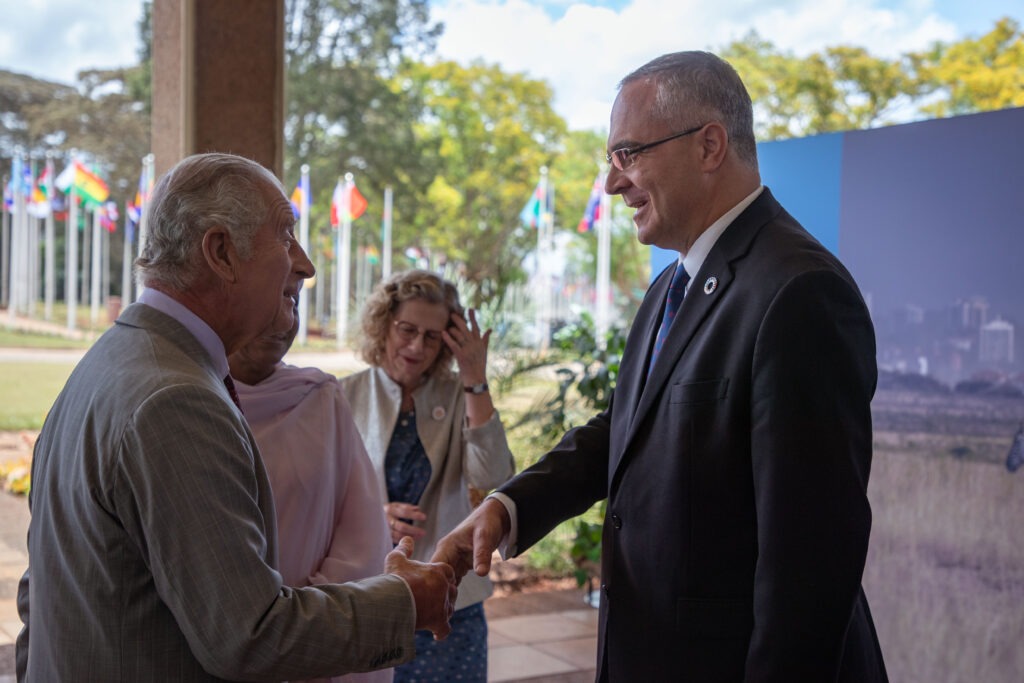
Credit: UN
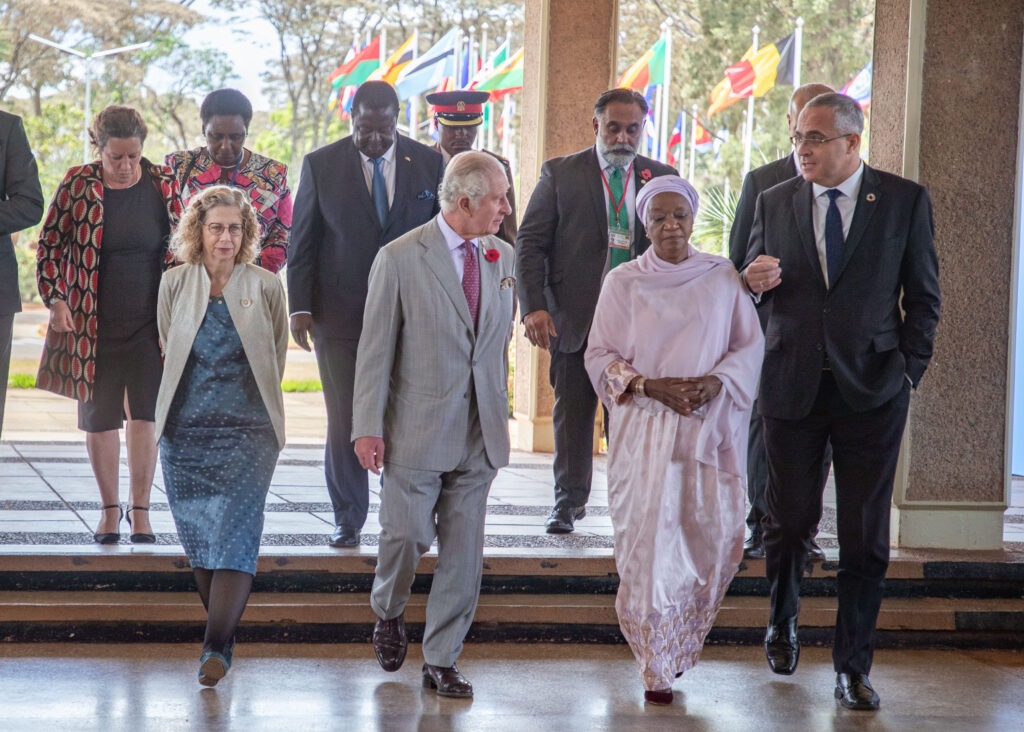
How do you facilitate cooperation between Member States and donors to implement the New Urban Agenda within the 2030 Agenda framework at UN-Habitat?
The shortest answer would be dialogue, engagement, and partnerships. As I mentioned before, these are critical components. This is at the core of my mandate, the task I received from Secretary-General António Guterres and Deputy Secretary-General Amina J. Mohammed before leaving New York for Nairobi.
Engagement with Member States is truly crucial for any UN agency. For that purpose, of course, we have three governing bodies. Our highest governing body is the United Nations Habitat Assembly, which takes place once every four years, where ministers of urbanization meet. The second level is the Committee of Permanent Representatives, where all the ambassadors in Nairobi discuss the agency’s important work. But the most operational and practically focused governing body is our Executive Board.
UN-Habitat’s Executive Board has 36 Member States, represented either by ambassadors in Nairobi or representatives from relevant ministries in their capitals. A lot of engagement happens at that level.
We have stepped up our engagements. We’ve been briefing Member States regularly, both in wider formats and smaller formats through regional groups or political groups such as the European Union, African Union, or the G77. Often, there’s also one-on-one engagement that facilitates some of the most impactful decisions and actions. This includes, of course, the voluntary financial contributions that we depend on from Member States. Without those, we wouldn’t be able to implement any part of our mandate.
I’m proud to say that our financial health or financial standing has significantly improved, especially since 2022. Since then, we’ve had a surplus in our budget, which has enabled us to stabilize the agency and spread our wings. This allows us to strive to produce an even better impact for the Member States and the people we serve.
Slovakia has undergone significant transformations throughout its history. How do you see these historical shifts reflected in the country’s approach to diplomacy and its contributions to global affairs today?
Indeed, this wasn’t just a transformational change. It was a generational change; a complete overhaul of the way things are, compared to what they used to be. I grew up in a communist regime. I was 19 years old when we brought down the authoritarian communist system during the so-called “Velvet Revolution” in November 1989. It started at the university I attended, so of course, it was fascinating to see things changing. As students, you can imagine we were very proactive. We demanded the democratization of our society, freedom, free and fair elections, and other important changes in our political system.
Remembering those times is always fascinating. However, I’m also a mountain boy. I grew up in the Tatra Mountains in northeastern Slovakia, on the border with Poland. As a child or teenager, I never imagined or expected to become a diplomat serving in New York or Africa. Those were unknown territories, unimaginable areas for me back then. I lived a very ordinary life in the mountains.
It was only when I started my university studies in Bratislava, the capital of Slovakia (at that time, it was a part of Czechoslovakia), that I began to realize things better and potentially think about other opportunities. These changes were only possible after those important political changes. During the communist regime, we were not able to travel or communicate freely with the rest of the world. Of course, up to a certain point, it was truly unimaginable.
It’s only thanks to those political changes that new opportunities came. Much later, I was able to join the diplomatic service. Initially, after graduating with a degree in Linguistics in teaching English and Russian, I became a high school teacher for seven years. Then, I had an opportunity to participate in the Fulbright Teacher Exchange Program in the United States. I went to Los Angeles, California, for a year in 1998-1999, where I taught English as a second language and Russian at a community college. I also took classes at UCLA.
This experience further pushed me to consider other paths after returning to Slovakia. After teaching for one more year, I applied to join the foreign service. I thought I had the necessary skills: communication skills, analytical skills, and good enough knowledge of history, geography, and political developments. I was truly excited to get an opportunity to serve my country in this new era – the democratic and free era after independence. Slovakia aspired to become a member of the European Union and NATO.
They first hired me as an interpreter for the Diplomatic Protocol Department. Then, I transitioned to a proper diplomatic job and started my diplomatic career.
In your opinion, what are the most critical challenges facing urban areas worldwide, especially in the context of sustainable development and climate change? How can UN-Habitat address these challenges effectively?
Let me just finish quickly on the previous question with one last thought.
The new era brought new opportunities, a stark contrast to the limitations of the communist era. This experience instilled in me a strong desire to prove that even people from a small country can make a big difference. This drive has been a core part of Slovakia’s diplomacy. We, along with many colleagues, invested a lot of energy in becoming full participants in discussions and developments, contributing, studying, and learning. This made a huge difference because, unlike countries with permanent Security Council seats or vast resources, we couldn’t take things for granted. Smaller countries have to prove they have something to contribute – arguments, initiatives, and practical solutions. This was the heart of my mandate as Slovakia’s Ambassador to the United Nations, and perhaps why others noticed the work a diplomat or ambassador from Slovakia was doing. They might have thought we could be helpful and supportive also in other contexts.
But this isn’t just my story; it’s the story of my colleagues who have worked extremely hard to represent their countries and contribute to making a difference. University students often ask me if a small country can make a real difference. My answer is always yes, but it requires hard work, commitment, and good bonding. Diplomacy is about networks, discussions, conversations, and meetings. If you just sit in your office waiting for documents, you’re unlikely to make much of an impact.
Now, back to your question about urban areas worldwide in the context of climate change… In my opinion, the two or three biggest challenges facing urban areas worldwide are urban climate change, urban sprawl, and inadequate housing. This is precisely why these three issues are so highly prioritized in our work at UN-Habitat. We see the future as undeniably urban, and addressing these challenges is imperative. Without proper planning and dedicated resources, we will be failing, especially our young people.
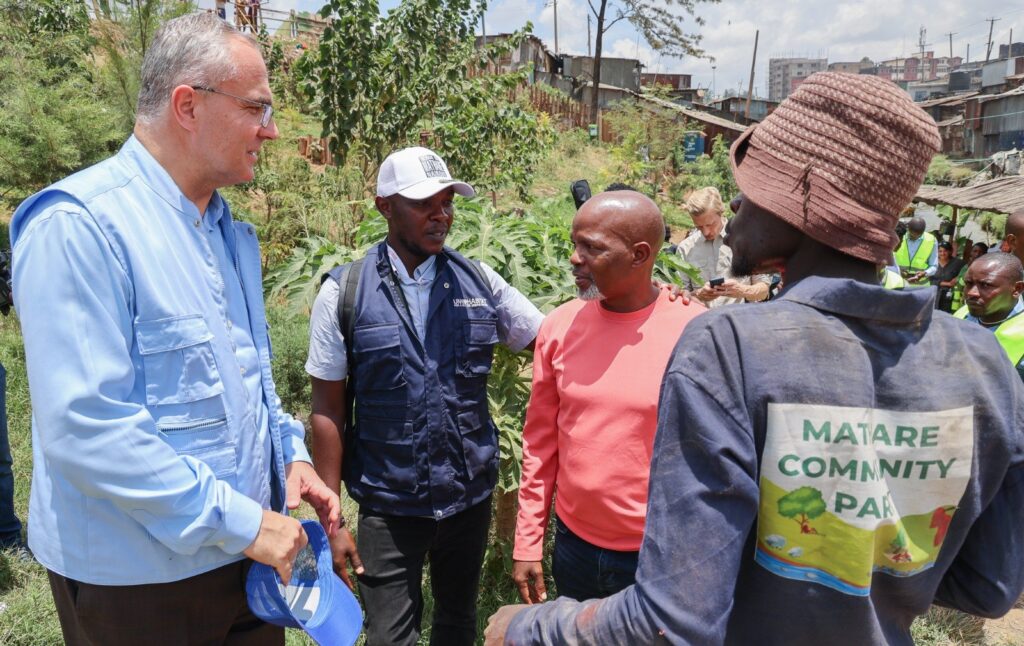
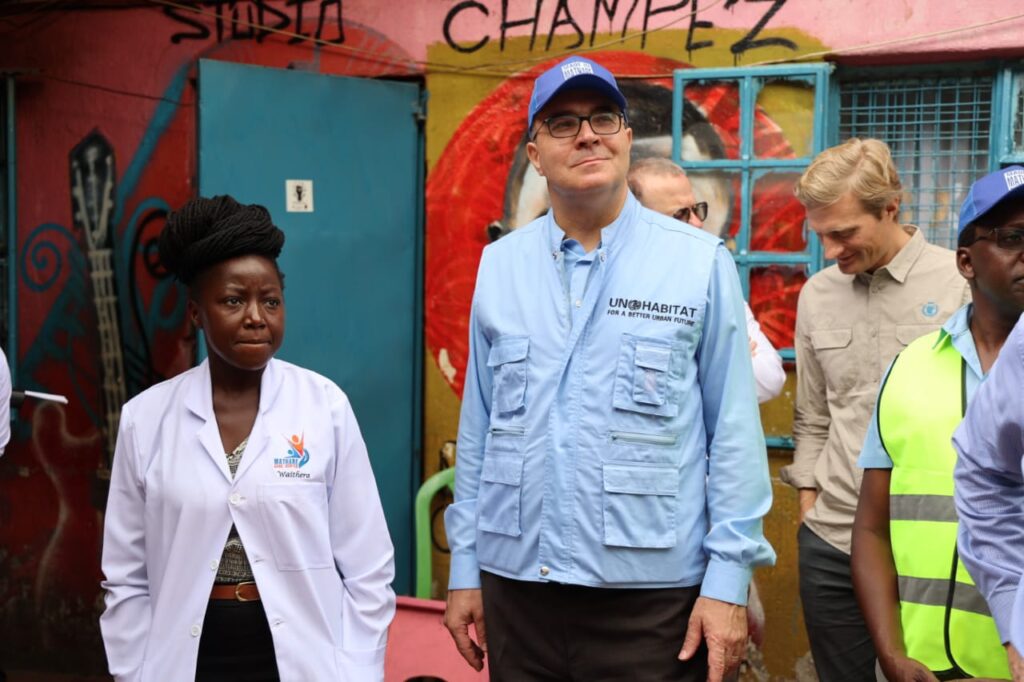
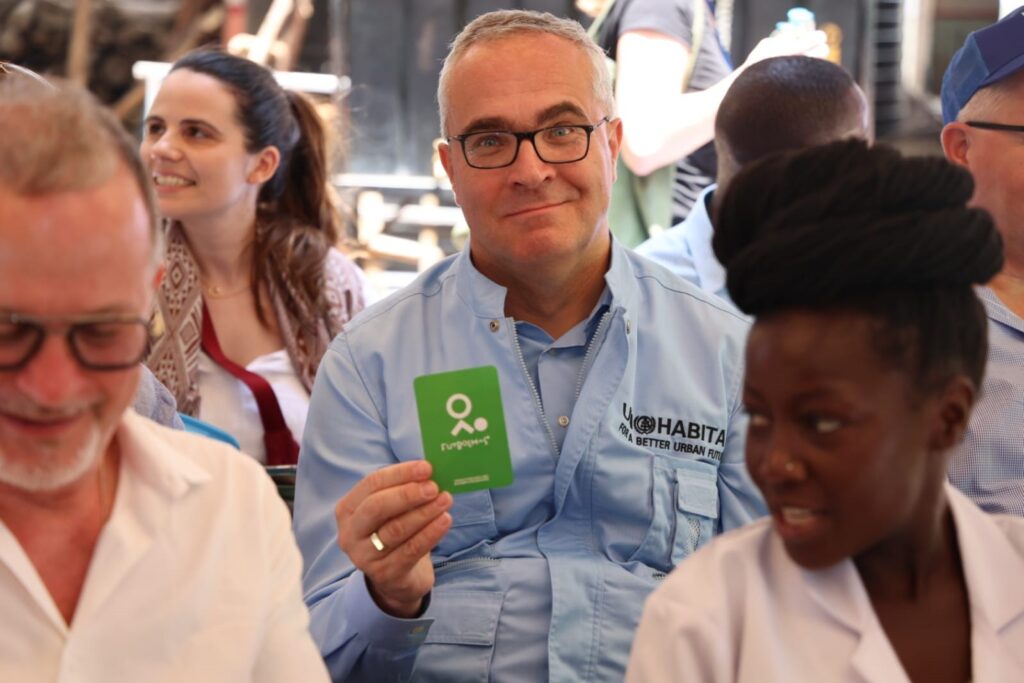

The consequences of ignoring the needs of young people in urban contexts can be dire. They could become disillusioned, potentially turning to crime, violence, or extremism. This is the last thing we need or can afford. The situation of women and girls, along with other social inequalities, also requires urgent attention in urban environments.
So how are we addressing these challenges? We’ve placed a strong emphasis on long-term urban planning, not just for the next election cycle but for the benefit of future generations. We also believe all relevant stakeholders need to be part of the conversation. It’s not just about national governments; local and regional authorities, youth organizations, women’s groups, professional associations of architects and urban planners, academia, and civil society all have a role to play in shaping a sustainable urban future. That’s why we’ve promoted urban fora where everyone has a seat at the table.
UN-Habitat plays a vital role in facilitating cooperation between Member States and other partners. We help them develop and implement national urban policies aligned with the Sustainable Development Goals and the New Urban Agenda. We also work to mobilize resources and expertise to support these efforts.
By working together, we can create more sustainable, inclusive, and resilient cities for all.
Could you share a memorable diplomatic moment during your tenure in New York? Perhaps an instance where diplomacy played a critical role in resolving a complex issue or advancing a shared goal?
There were certainly many interesting, memorable, and rewarding experiences during my nearly six years as Slovakia’s Ambassador and Permanent Representative to the United Nations in New York. Prior to that, I served for five years as Deputy Ambassador, giving me a total of almost eleven years at the UN – a significant portion of both my professional and personal life.
Let me briefly share two examples.
The first was when I served as Chair of the Sixth Committee of the United Nations General Assembly in 2019 and 2020. The Sixth Committee deals with legal matters. While I’m not a lawyer, as I mentioned before, I believe my experience as a diplomat and an educator served me well in many aspects of diplomatic work.
During my time chairing the Sixth Committee, some challenging issues between certain countries prevented them from seeing eye-to-eye. This situation threatened the committee’s ability to even open its session that year. The potential solutions included completely rearranging the working methods or abandoning the committee’s noble tradition of reaching decisions by consensus.
Consensus-based decisions are important because everyone is on board, and no one can disassociate themselves from the outcome. In the legal context, this is even more significant as the Sixth Committee develops important international conventions.
At that time, the situation was so challenging that it threatened to completely change the established practice in the committee. It required a lot of engagement, political and diplomatic wisdom and sensitivity, critical and analytical thinking, and of course, diplomatic and communication skills. I needed to talk to both sides of the problem and try to find common ground.
You can understand that I can’t share more details due to their sensitivity. Both sides were focused on their perspectives. The task was to bridge the differences in a way that allowed for small concessions, ultimately leading to a situation where both sides would be equally “unhappy”.
A solution that pleased everyone wouldn’t be realistic, considering the political landscape. So, we took a few days and employed a technique we can call “salami tactics”. This means we addressed the problem step by step. We couldn’t reach a decision on the entire package immediately, so to build trust, we agreed on the first few agenda items.
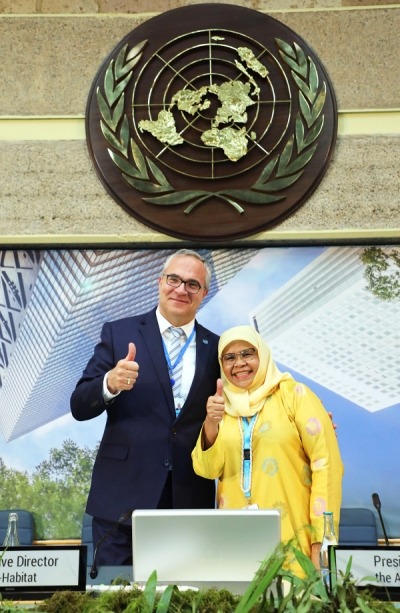
The next day, we addressed a few more agenda items. This “salami technique” along with further engagement helped build trust. In the end, both parties felt confident moving forward. This was the solution we had to design, and it proved to be a very tricky, extremely challenging, but ultimately rewarding experience.
It resulted in appreciation from all Member States, who unequivocally agreed it was the right solution, although some initially favored a more radical approach. I believed we needed to invest time and energy into finding a consensual solution.
Another experience I’d like to highlight is serving as a Co-Chair for three years of an important process in the UN General Assembly called the Ad Hoc Working Group (AHWG) on the revitalization of the work of the General Assembly. It may sound strange, but revitalization means improving the internal working methods to build trust, and consensus, and become more efficient, less bureaucratic, and less formalistic, which is necessary in today’s world.
For three years, I co-chaired this important process, and we made significant progress on practical procedures and political aspects of the General Assembly’s work, making it more relevant, impactful, and efficient. Of course, it wasn’t a complete overhaul, which isn’t possible. The one major issue pending, as you’d likely agree, is the long-overdue reform of the Security Council.
For one year, I also served as a Co-Chair of the intergovernmental negotiations (IGN) on the reform of the Security Council. This was much more challenging. But on the revitalization process, I’m truly proud of the practical impact we achieved, including increased participation of women and streamlining how we conduct business.
We also made progress on practical arrangements for the selection process of the Secretary-General and the annual election of the next General Assembly President. These are some of the key building blocks of how the General Assembly can function.
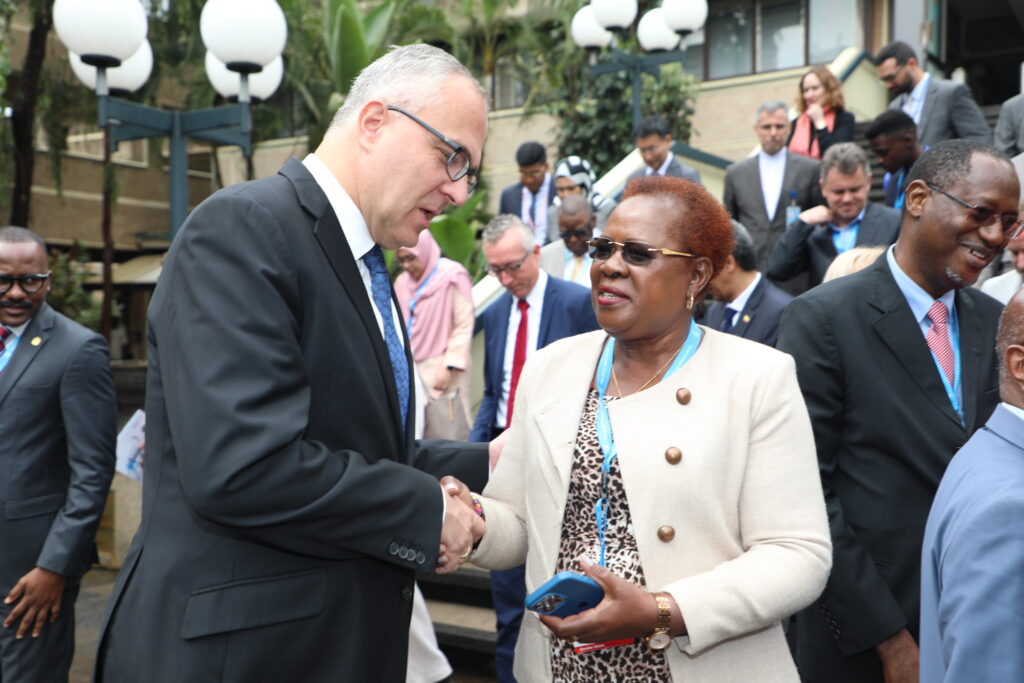
As you see, due to the divisions in the Security Council on some of these key global challenges, including Ukraine or the Middle East, we see an increasingly important political role played by the General Assembly. This is because issues that cannot be agreed upon in the Security Council are then sent to the General Assembly, which is, by the way, the most representative body within the UN system. All 193 Member States have one vote in the General Assembly.
In the General Assembly, Slovakia has the same voting power as Russia, the United States, or China. So, the importance of the General Assembly has grown exponentially in recent years. It’s important to remember, however, that the General Assembly cannot adopt legally binding resolutions. All its resolutions are non-legally binding, but they carry strong political and moral significance, which is crucial in shaping and reforming the global agenda.
As a seasoned diplomat, what qualities do you believe are essential for effective diplomacy and successful collaboration within international organizations like the UN?
Effective diplomacy and collaboration in organizations like the UN rely heavily on several key qualities. In the UN context, where all Member States have equal footing, it’s the efficiency, effectiveness, and proactive approach of individual countries and delegations that truly make the difference.
I’ve personally witnessed the significant impact of smaller countries – I prefer “smaller” over “small” here. Countries like Switzerland, Liechtenstein, Sweden, and Norway all have highly capable diplomats, including at the UN headquarters in New York. These diplomats bring forward initiatives and take responsibility for leading some of the most sensitive and critical diplomatic processes, including some I’ve mentioned previously.
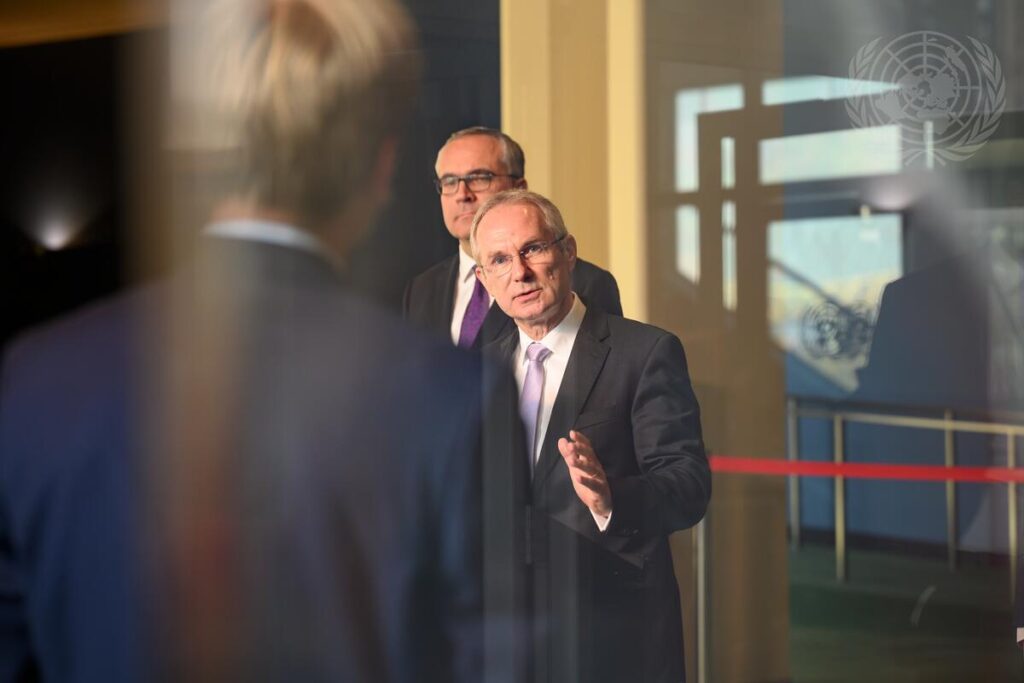
The recent pandemic serves as a stark reminder of the importance of in-person interaction. During that time in New York, our ability to perform our diplomatic duties effectively was severely hampered. Virtual meetings simply can’t replicate the nuances of diplomatic meetings and negotiations. Sensitive discussions can’t be held over virtual platforms also due to security concerns. The essence of diplomacy lies in personal contact and trust. Even adversaries with vastly different viewpoints can find common ground through face-to-face dialogue, perhaps over coffee, lunch, or breakfast. It’s through these interactions that they can iron out their differences. The pandemic highlighted our inability to achieve this virtually.
That’s why, during the pandemic, we were practically unable to adopt any new resolutions. Negotiations require compromise – finding solutions where everyone concedes a little. This back-and-forth simply can’t be replicated online. It’s just not an effective method.
The pandemic era saw us rely heavily on “technical rollovers.” Essentially, we’d use a previous resolution as a base and wouldn’t make any changes to it. The moment we would have opened it up for discussion, it would likely have fallen apart. So, instead of reopening negotiations, we agreed to technical rollovers. This meant simply updating things like dates, numbers, and factual data – no controversial changes. We essentially “rolled over” these resolutions repeatedly.
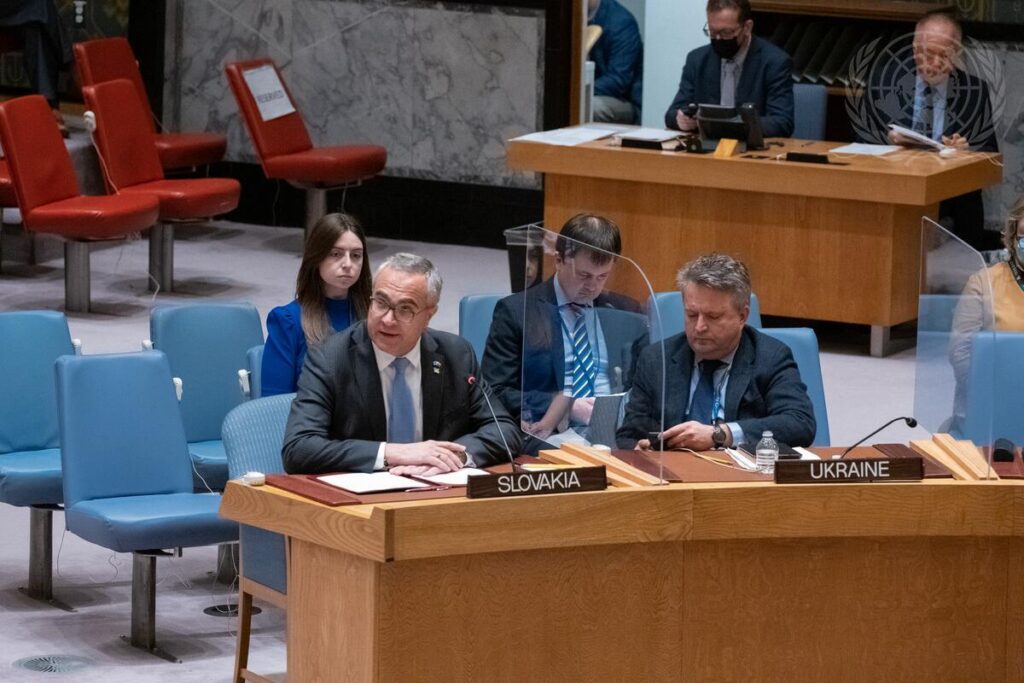
This approach reflects the reality of the pandemic period. Only after things began to return to normal and in-person interaction resumed, we were able to restart proper diplomatic processes and negotiations.
Beyond this, effective diplomacy requires personal charisma, strong communication and interpersonal skills, and of course, the ability to truly listen to others. This is the only path forward. Perhaps in the past, with a more traditional way of conducting business, things were different. But times have changed. Overly formal and bureaucratic approaches are no longer sufficient – they simply don’t serve the purpose as well as they once did.
To achieve real results, we need to look each other in the eye and engage in a more personal way. Digital tools can certainly be helpful, and they can streamline certain tasks. But virtual platforms cannot replace the value of face-to-face contact. Technology can be used for briefings or simplifying some practical aspects of diplomacy, but true agreements and negotiations still require direct personal engagement and mutual trust. This trust is the most precious commodity – or perhaps currency – in the world of diplomacy. Trust between those representing vastly different positions is essential.
That’s why the current erosion of trust in international relations and multilateral settings is so dangerous. We need to do everything we can to protect these multilateral channels and the remaining trust we have, even among adversaries. Even the five Permanent Members of the Security Council, who often clash publicly, have in many cases been able to find some basic procedural solutions behind closed doors to keep things moving forward. Naturally, this is becoming increasingly difficult in the current geopolitical climate. Diplomacy, while not a direct part of politics, is certainly not immune to it. It cannot completely separate itself from political developments, as it must reflect these realities.
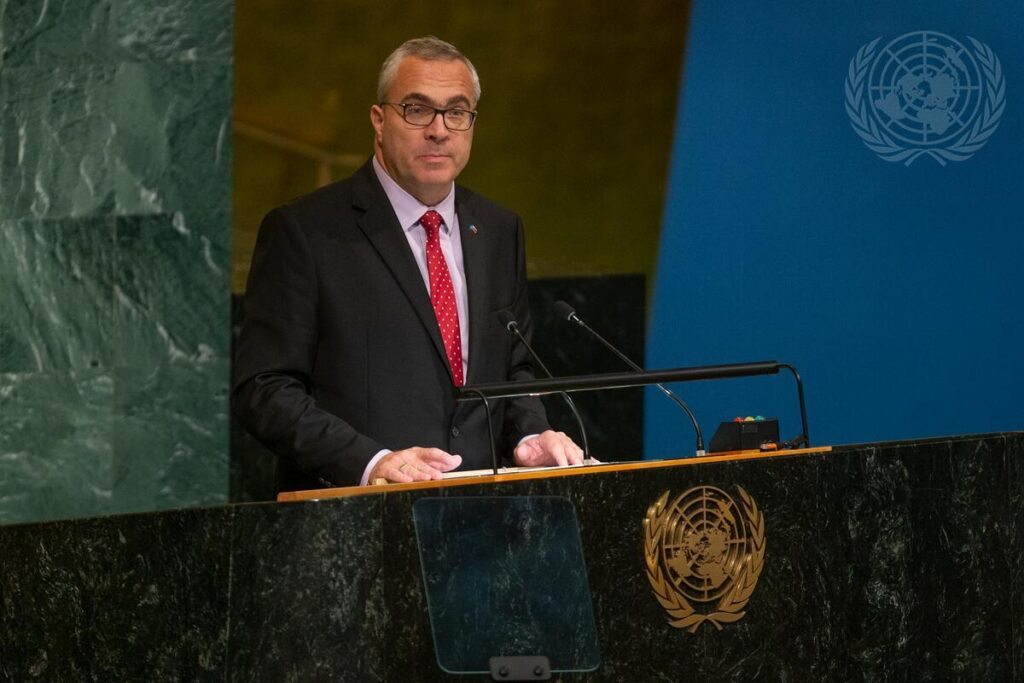
What legacy would you like to leave during your tenure as UN Assistant Secretary-General and Acting Executive Director of UN-Habitat?
Of course, I don’t know how long I’ll remain in the acting capacity. We expect the next Executive Director to be appointed in the next few weeks or months. Regardless, I’ll continue serving as Assistant Secretary-General and Deputy Executive Director after the appointment is made. I’ll fully support the work of the new Executive Director and the agency.
My most important legacy, I believe, is the practical impact and real difference we, as an agency and an integral part of the UN system, can make in the lives of the people we serve. There’s nothing more important than having a practical perspective on the lives of the people we can help improve or protect – their lives, careers, and futures, especially for the young generation. It would be a tragedy to create another “lost generation” in new ways.
This is why empowering young people, particularly in Africa, has been a top personal priority for me. I constantly engage with our Youth Advisory Board, a group of 17 young people from around the world. I frequently visit universities, schools, and youth projects. Their energy, activism, and enthusiasm are a constant source of inspiration for me. It’s like refueling my car – engaging with young people keeps me going.
When we empower young people and include them in discussions and decision-making processes, we’re on the right track. I’ve seen a lot of traction coming from them. They’re always receptive, appreciative, and committed. Sometimes, of course, they push us to move faster than developments allow. But that’s their role: to be agents and ambassadors of change, as I often encourage them to be, and they’re often very happy to take on that role.
Of course, by youth, I very much also mean women and girls. They need to be part of the same conversation.
As someone blessed with amazing women in my life, I feel a particular responsibility. My wife is a mathematics professor at a high school here in Kenya. Back in New York, she taught at the City University of New York. I also have two daughters – a 22-year-old who just started her first semester at Fletcher School in Boston and a 16-year-old who’s in Nairobi with us.
I believe I owe it also to my daughters that their salaries should never be lower than those of their male counterparts. They should never be silenced or discouraged from pursuing their goals simply because they are women.

